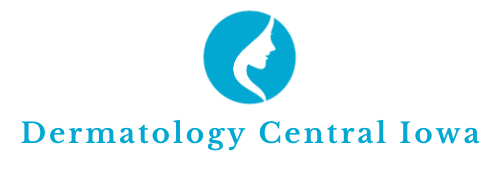Accutane (Isotretinoin)
Isotretinoin is a powerful medication that is used to treat severe, chronic cystic acne that has not responded to other treatments.
Cystic acne is a severe form of acne that causes large, painful cysts and nodules to form under the skin. These cysts and nodules are much bigger than normal acne pimples and are often extremely painful.
Cystic acne can cover the face, neck, chest and may even spread to the back. It can cause deep scarring, texture issues and discoloration that lasts for years or even life.
Unfortunately, this type of acne cannot be treated with over-the-counter acne medications, and can get worse during the teen years.
Cystic acne can cause severe psychological distress, including low self-esteem and higher incidence of mental health issues like anxiety and depression.
What Causes Chronic Cystic Acne?
Similarly to normal acne, cystic acne develops when sebum (oil), dead skin cells and bacteria get trapped in hair follicles. Unlike normal pimples, acne cysts grow deep in the skin and rarely rise to the skin's surface where trapped oil and debris can drain from the nodules (like a whitehead on a pimple does). As a result, these cysts can erupt beneath the skin, causing large, painful boils that can take months to heal.
There are many factors that increase a person's likelihood of developing cystic acne:
- Hormones - The hormonal changes of puberty make teenagers especially susceptible to developing both regular acne and cystic acne. Acne in teenagers is associated with poor self-image, self-esteem issues, social withdrawal, and high levels of anxiety and depression.
- Being female - While teenage boys have higher rates of cystic acne than teenage girls, hormones play a huge role in cystic acne in adult women. Hormonal changes associated with aging and pregnancy can cause cystic acne in women in their 20s, 30s and 40s.
- Having oily skin - Excess sebum is a key factor in the development of both regular and cystic acne
- Genetics - A person is more likely to develop cystic acne if one or both parents had it
Isotretinoin is the Most Clinically Effective Treatment for Cystic Acne
Many individuals with cystic acne try a multitude of treatments for months or even years, with no improvement in the appearance or severity of their acne. Many take antibiotics, use prescription face creams and washes, and try high-powered chemical peels to reduce the painful, unsightly cysts on their skin. Many people may experience slight initial improvement after trying a new treatment, only to have their skin relapse and even get worse after a couple of months.
For these people, isotretinoin can be a life-changing treatment option.
Isotretinoin, a Vitamin A derivative, was developed in 1982. In 2020, it remains the most clinically effective treatment for severe acne.
Isotretinoin works by impacting virtually all of the etiological factors that contribute to acne: it lowers sebum production, has anti-inflammatory properties, makes pores less receptive to bacteria, and reduces accelerated shedding of skin cells.
One study showed that 85% of patients experience nearly complete clearance of acne after four months of treatment, and only patients treated with isotretinoin were still acne-free three to five years after treatment.
While isotretinoin is the most clinically effective treatment for acne, it can also cause serious side effects for many people.
Learn more about the side effects of isotretinoin by visiting the American Academy of Dermatology's website today.

